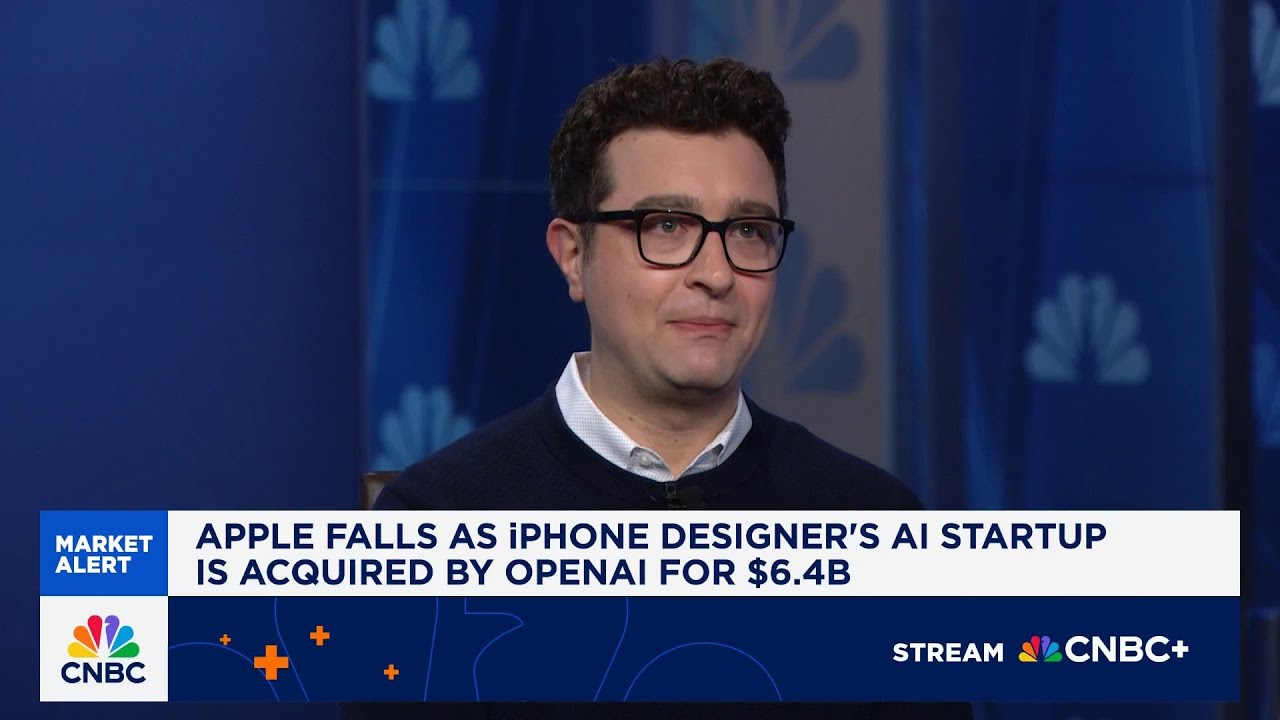The video explains that Apple’s shares declined after OpenAI acquired Jony Ive’s AI startup for $6.4 billion, raising concerns about Apple’s hardware innovation and AI progress. It highlights Ive’s new AI-focused hardware venture and suggests that this development could lead to a future where AI significantly transforms device interactions, but also notes market worries about Apple’s recent AI struggles and design leadership changes.
The video discusses the recent decline in Apple shares, which fell to session lows following the announcement that OpenAI acquired Jony Ive’s AI startup for $6.4 billion. The market’s reaction appears to be influenced by this deal, as Jony Ive, a legendary designer who left Apple in 2019, is now leading a new AI-focused hardware group called IO. The departure of Ive and other key design executives from Apple has left the company’s hardware design leadership somewhat destabilized, raising concerns about its innovation trajectory.
Jony Ive’s new venture with OpenAI is reportedly working on a breakthrough that could revolutionize hardware in the AI era. During a video presentation with Sam Altman, Ive mentioned that his team has developed a new paradigm for hardware that could significantly enhance AI interactions. This development hints at a future where hardware devices might become more integrated with AI, potentially offering more seamless and always-on AI experiences that are easier for users to access and interact with.
The discussion also touches on the broader implications for Apple, especially given recent comments from Apple executives like Eddy Cue. Cue suggested that in ten years, AI advancements might eliminate the need for traditional devices like the iPhone. This aligns with the idea that AI could fundamentally change how we interact with technology, possibly reducing our dependence on smartphones and other hardware. The acquisition of Ive’s startup by OpenAI signals a focus on developing innovative hardware that could support this AI-driven future.
Furthermore, the video highlights concerns about Apple’s stalled efforts in artificial intelligence. Despite early promises, Apple has struggled to deliver significant AI breakthroughs, leading to disappointment among investors and consumers. The departure of Ive and the failure to meet AI expectations have compounded worries about Apple’s ability to stay competitive in this rapidly evolving field. The acquisition of Ive’s startup is seen as a strategic move to regain momentum and develop new hardware solutions that leverage AI advancements.
In conclusion, the deal between OpenAI and Jony Ive’s startup marks a significant shift in the tech landscape, with implications for Apple’s future product strategy. The focus on hardware innovations driven by AI could potentially lead to a new era of devices that are more integrated, intuitive, and less reliant on traditional smartphones. However, the market remains cautious, reflecting concerns about Apple’s recent AI struggles and the impact of losing a design legend like Ive. The next year will be crucial in revealing how these developments unfold and whether they can revitalize Apple’s hardware and AI ambitions.
